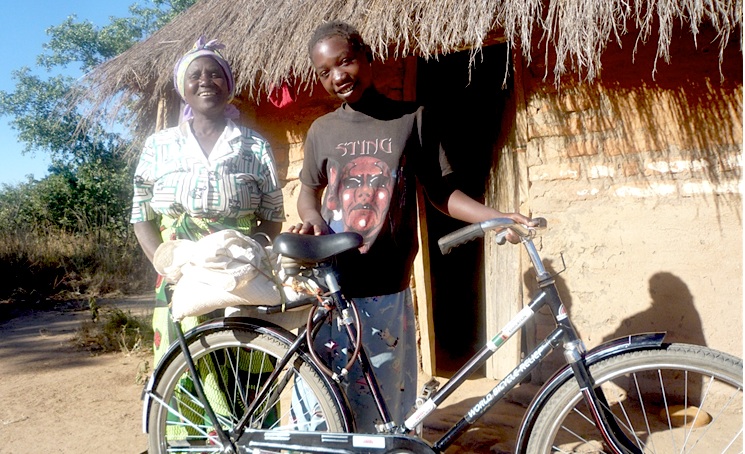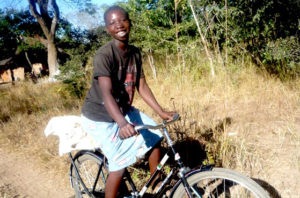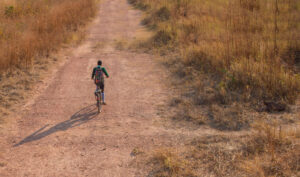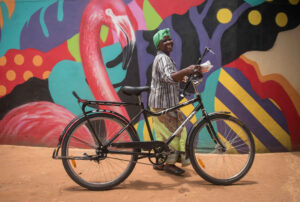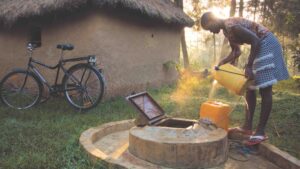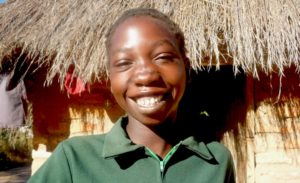
At 14 years old, orphan Belita would wake up to darkness in the Chuungu village. She rose before 5 a.m. each day in order to make the trek to her school, a full 5 km in the Kalomo district of the southern province of the Republic of Zambia. Belita didn’t have time to help her grandmother with morning chores. Instead, she simply would grab a meal and begin to walk.
Even with her early schedule, she struggled to get to school on time. She dreaded the slap on the wrist she received at the front of the classroom each day when she was late. After class, Belita would begin the hike home, arriving at her village with just enough time to help with chores, eat, and, if time allowed, complete her homework before starting all over again.
Fast-forward one year. Belita is now 15 years old and in 7th grade at the Chilal basic school. She has improved her class standing, moving from 10th to 7th in her grade. She no longer has trouble arriving to school on time and can help her grandmother with chores around the house. And Belita now has enough time to complete her schoolwork. She sees herself finishing basic school before enrolling in a nurses training college.
